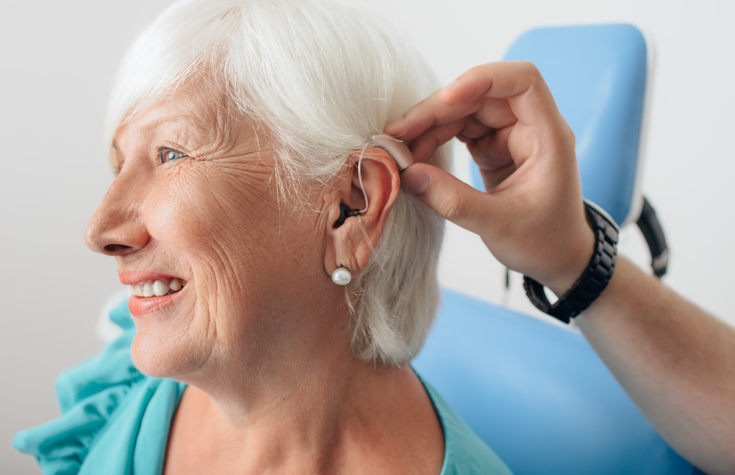
Researchers have discovered an association between dementia and hearing loss.
When checking in on Mom, you find the TV is blaring, and she is asking you to repeat what you’ve just said, or even to speak up because she thinks you’re mumbling. Some degree of hearing loss is quite common in seniors, and definitely warrants staying on top of through regular hearing screenings. But there’s another reason to pay special attention to any hearing issues in seniors: the association between dementia and hearing loss.
What Is the Association Between Dementia and Hearing Loss?
Experts believe there are many factors that go hand in hand with a senior’s hearing loss and an elevated risk for dementia.
- When a person has hearing loss later in life, the brain starts to shrink more swiftly
- Hearing problems might cause seniors to reduce their social time with others, triggering a decrease in brain activity and engagement along with intellectual stimulation
- The brain needs to work harder in order to comprehend audible input, influencing memory and thinking as it strains to fill in the gaps of missed conversation
Reports have revealed that older adults dealing with a decline in hearing also experience a reduction in cognitive functioning as much as 30–40% faster than people without hearing loss. Additionally, hearing loss causes an increased risk for depression, falls, and other serious health issues.
The next step is further exploring the potential link between hearing loss and dementia and to determine if seniors who get treatment for their hearing loss can preempt the development of dementia. With 48 million people in the U.S. alone struggling with some form of hearing loss, the possible effect of better understanding this link is significant.
How Can I Help a Senior Who Has Hearing Loss?
If hearing aids are recommended by a physician, encourage a loved one to wear them, and to comply with the doctor’s prescribed regimen of regular checkups and adjustments.
Also, encourage your family member to remain socially active in spite of hearing loss. Having a companion accompany the person on visits with friends and family or on outings is a great way to help them feel more at ease and safe. The companion can serve as a liaison when needed to help the individual participate in conversations and not feel left out.
At At-Home Care Company, our caregivers make great companions for those with hearing loss or any other health issue. We can provide accompaniment and transportation to medical appointments as well as fun outings, along with a wide variety of personalized support services at home or on the go.
We also offer specialized care services for those with dementia. Our fully trained and experienced professionals know the specific challenges associated with the disease and supply creative, compassionate solutions.
Contact us at 515-292-2650 to learn more about how we can help someone you love enjoy life to the fullest!
